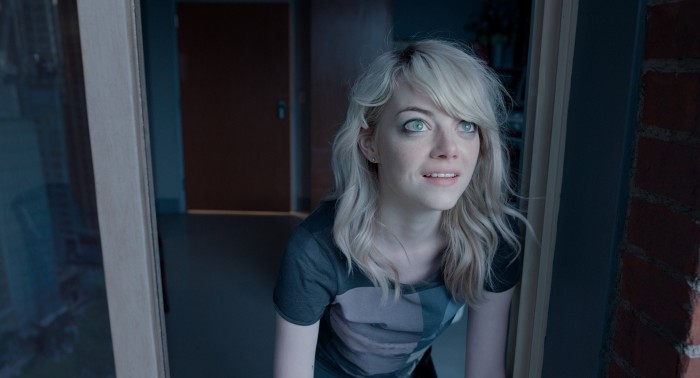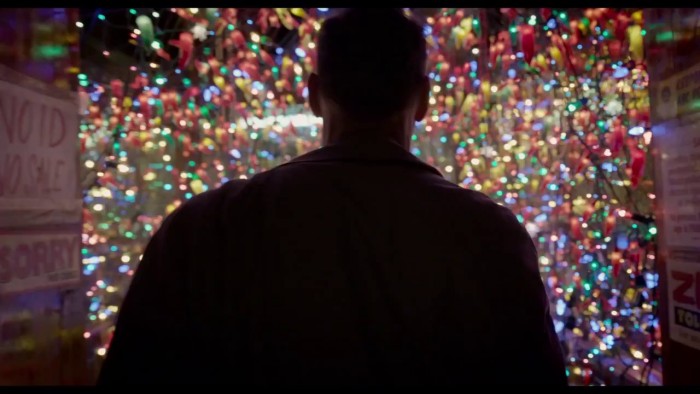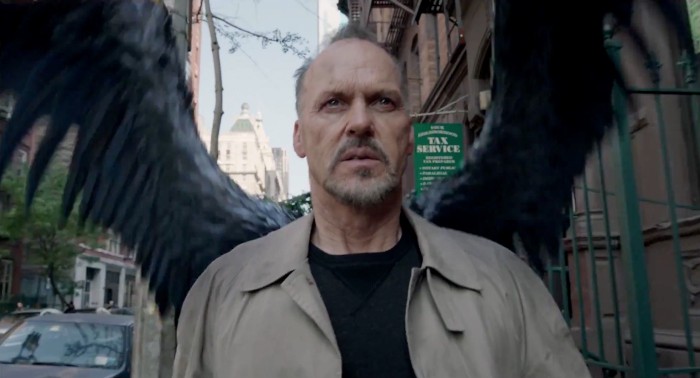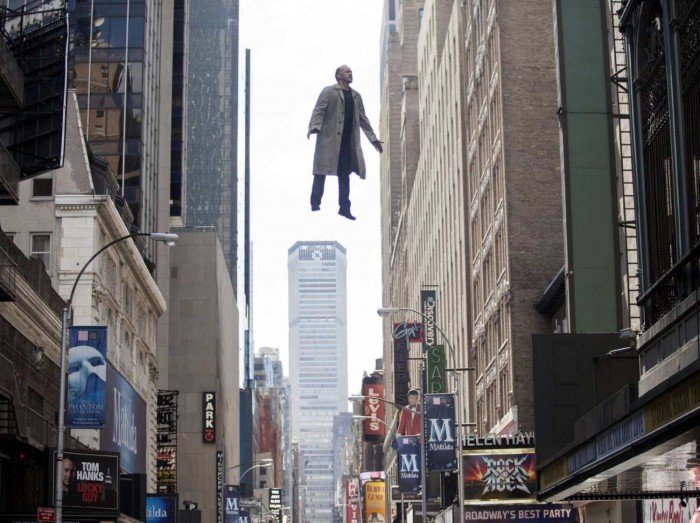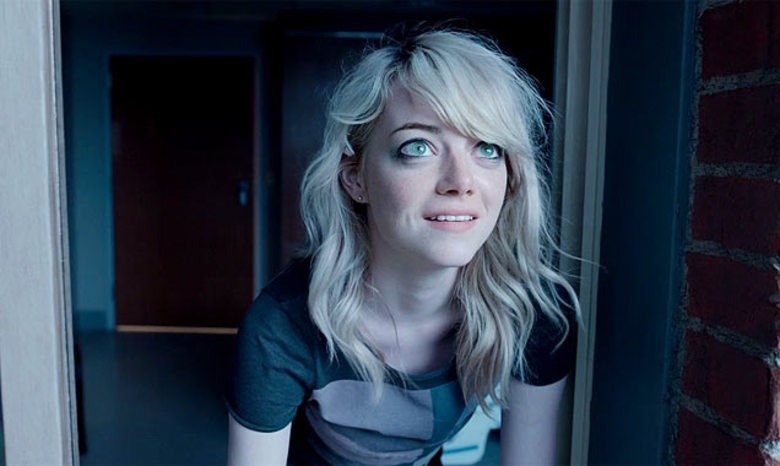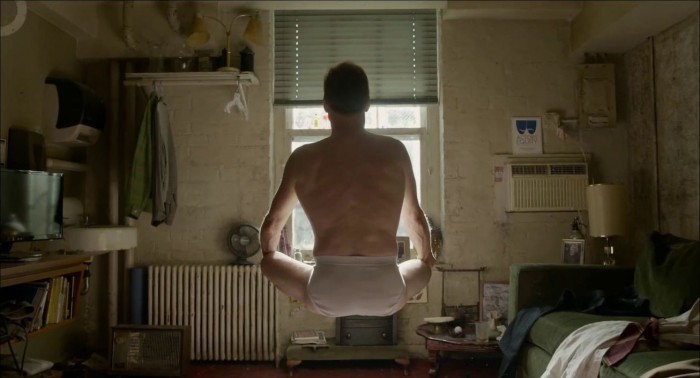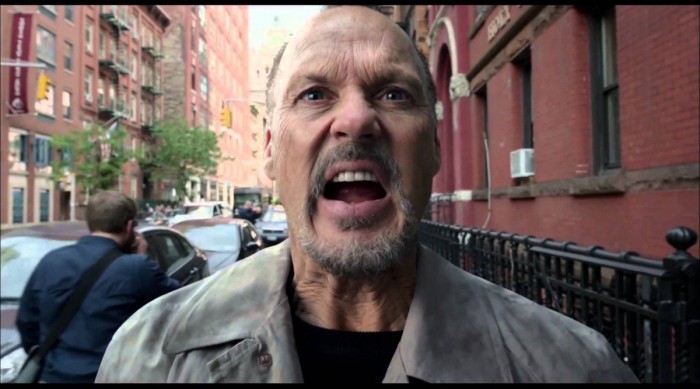Let's Talk About The Ending Of 'Birdman'
Alejandro González Iñárritu's Birdman is one of the most technically dazzling and thematically ambitious films of the year. With an all-star cast and some spectacular digital effects to make the film seem like it was done in one long continuous shot, Birdman is stuffed to the gills with ideas and importance. This movie doesn't just want to make you feel something, it wants to say something about humanity and stardom and the inner lives of celebrities and the "cultural genocide" that superhero films have wrought upon us.
But what was up with that ending? Let's explore. Massive spoilers for Birdman follow.
What Happens In The Birdman Ending?
First, here's a description of the ending from Wikipedia, which matches my understanding of how things happened:
On opening night, the performances are better than ever. Riggan uses a real gun for the final scene, shooting himself in the head in front of the audience, and earns a standing ovation from all but Tabitha, who walks out during the applause. He is down in the hospital, alive, because he had only managed to shoot off his nose during the play. Jake is ecstatic about a very unexpected rave review from Tabitha, lauding Riggan's development of a new acting style she dubs "Super-Realism," and the fact that his best friend is still alive. While alone in his hospital room, after a poignant father-daughter moment with Sam, Riggan spots birds flying outside his hospital room and climbs out onto the ledge. When Sam returns, Riggan is gone. Sam hurries to the window, looks down at the street, expecting to see a body, then with a puzzled expression slowly looks skyward, and then smiles brightly.
What Really Happened?
When I first watched the film, I spent the last few minutes scrambling to process all that had come before. Riggan was always a lousy guy, but shortly before he walked out onto stage for opening night, he seemed to have come to peace with who he was. When he took a real gun with him into the play's final scene, it all locked into place: this man's madness was going to be his undoing. In his never-ending quest for relevance and meaning, Riggan was going to kill himself. He was going to land himself the ultimate theater review, a review that would live on for generations, but also one that he didn't have to read because he wouldn't be around anymore. He was going to show Tabitha how far he was willing to go for his art, and prove to her that he was capable of more than just "cartoons and pornography." Only...
That's not how the movie actually ends. In an epilogue that is enigmatic and affecting, we learn that Riggan survived because he fired the gun incorrectly and only ended up destroying his nose. The play is a smash success and everyone in the country is talking about Riggan again. Riggan has received everything he ever wanted, and he is still around to finally see it.
So did Riggan mean to kill himself, and only end up accidentally shooting off his nose instead?
All signs point to yes. Consider, for instance: the way Riggan seems to want to show up Tabitha; the way Riggan angles the gun on stage; Riggan's general demeanor of emotional exhaustion; the allusion to "accidentally" not killing oneself that Jake and Lesley make earlier in the film. All of these indicate that Riggan's survival was not intentional. Later, in the hospital room, we see Riggan climb on the ledge, and we are meant to extrapolate that he's going to try flying once more. This is a man who feels like he's done what he's set out to do and has now been completely disconnected from reality.
About That Flying
Throughout the film, we've seen Riggan exercise supernatural powers on his environment. I've seen various interpretations of this, but I think Riggan's powers are a physical manifestation of his own self-inflated sense of importance, or an imagined way of his inner-Birdman persona empowering him. Either way, whenever Riggan does something that physically changes his environment (e.g. trashing his room using telekinesis, flying back to the theatre from an apartment rooftop), there's a theoretically plausible explanation for it in the real world, or the film actually explains how it happened. (E.g. he took a taxi back to the theatre and didn't pay for it – no flying involved.)
So why does Riggan's daughter smile as she looks out the window in the very last shot of the film?
Again, every time in the film Riggan does something "supernatural," there's always some natural explanation for it, but this time, when he flies away, his daughter looks up, not down. ("Down" being where Riggan would presumably be, if he did in fact jump without actual the ability to fly.) Thus, I posit that the very last shot of the film is Innaritu's way of joining the metaphorical/imagined with the real. Riggan still can't fly, nor does he actually jump out a window in that last scene. The movie is just conveying that for the first time, Sam is seeing her father the way he sees himself.
Alternate Theory
I have heard an alternate theory from playwright Brandon Taitt, and that is that Riggan, in a bout of self-delusion, does actually jump out the window. When his daughter looks down, she sees his dead body and experiences a psychotic break, resulting in her look upwards at the end. I do think this explanation is a bit of a stretch – while the script does seed in that Sam is a bit mentally unstable, the look she has at the end is more rapturous and joyful than it is one of madness.
[Or maybe, as Russ Fischer mentioned to me, he does jump and die, but Emma Stone looking out after him is Riggan's imagination of what happens after his death. After all, we've been in Riggan's head for much of the movie. Perhaps the film is showing us what Riggan wants his daughter to see out of his final actions? That, having accomplished what he set out to do, he's finally free?]
All that being said, I think my explanation of the film's ending, if accurate, makes the film a bit self-defeating. I had thought the whole point of the film was that even though Riggan's cause was noble, his level of obsession was unhealthy. This man let his whole life pass him by in the pursuit of fame and wealth. And even in trying to put on the play, he's destroying relationships left and right (not to mention his face). When he shares that tender moment in the green room with his ex-wife Sylvia, it's a glimpse into an existence he surrendered and probably wishes he could get back.
But with Riggan internationally famous yet again, Riggan seemingly happy, and his whole family back on his side, isn't the movie saying that sometimes that obsession is worth it? My colleague Matt Singer points out that the ending might not be as happy as all that. Riggan still isn't respected or appreciated as an artist, and while he has more Twitter followers, he's not exactly a huge fan of microblogging. He's still a freak show.
And perhaps that's really what the ending is trying to say: no matter what we try, no matter what drastic measures we take, we will always remain prisoners to ourselves.
Update: The screenwriters of Birdman have since revealed that the Original 'Birdman' Ending Took Aim at Another Big Film Franchise. Read about that by clicking the link.Discuss: What did you think of the film's ending? Which interpretation makes the film the most rich and meaningful for you? Assume SPOILERS in the comments below.

